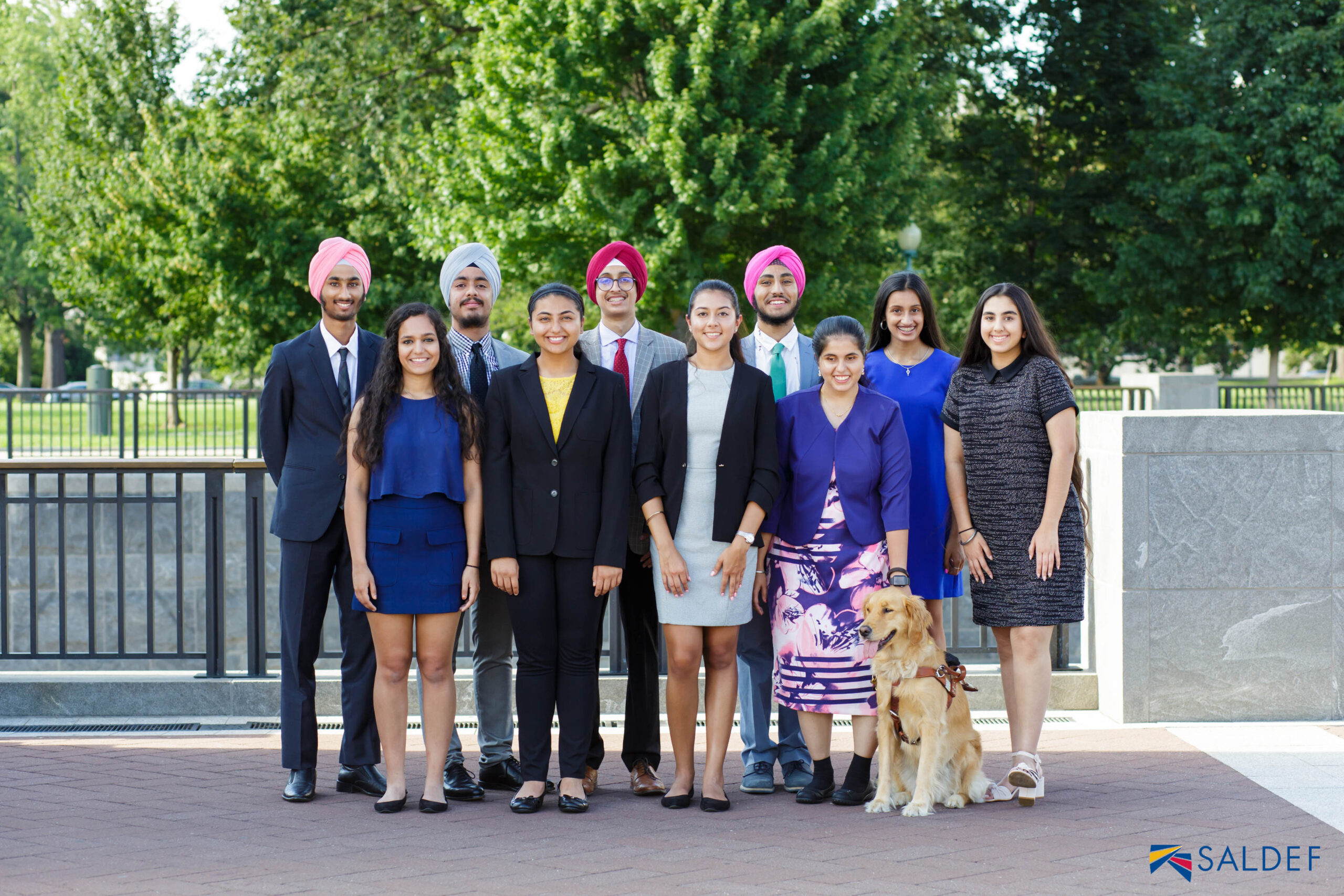Background
The word Sikh means disciple or student. Sikhs are students and followers of Guru Nanak (b. 1469), the founder of the Sikh religious tradition, and the nine prophet-teachers—called Gurus—who succeeded him. Though sometimes mistaken for members of a sect of Hinduism or Islam, Sikhs belong to a distinct religion with its own unique, divine scriptures, which are collected in the Guru Granth Sahib, the eternal spiritual guide of the Sikhs. This extraordinarily poetic treasure of sacred and practical wisdom contains not only the writings of the Sikh Gurus but remarkably, those of Muslim and Hindu saints as well. It is also notable that the holy text was written by the Gurus themselves, without the use of any intermediaries. Today millions of Sikhs worldwide trace their religious origins back to Punjab, in present-day Pakistan and Northern India.
Resources

Who Are Sikhs?
Sikhism is the fifth largest religion in the world, and yet many are still unaware of Sikh practices, beliefs, and customs. Use these simple guides to better understand the basics of Sikhi, and share the knowledge with your networks.

Significant Observations
One-pagers and guides to important Sikh holidays.
Sikh Tenets
Sikhism’s central theological belief is that there is one God for all of creation, a loving creator attainable through meditation upon the remembrance of God’s name. In addition, Sikhs are enjoined to lead moral lives, earn their living through hard work and honest means, and to share the fruits of their labor through charitable contributions and work. Sikhism is a way of life that advocates holistic life experiences (work, worship, and service) in order to attain a perpetual union with God while creating a just social order in this world. A Sikh is required to lead a wholesome family lifestyle and avoid asceticism as a means of reaching God. Sikhs have a long, celebrated heritage of speaking out against injustice, and standing up for the defenseless.
Sikh Values
Sikhs are defined by their belief in one God, equality, justice, and community. They are taught to live their values every day through the principles of worship, work, and service. If you visit a gurdwara (house of worship) you will see the Sikh spirit and values in action. Everyone, regardless of background, is welcome to partake in the worship and langar (free kitchen), where they are served by their fellow worshippers in an act of equality, humility, and service.
Educational Videos
In partnership with Faith Counts, SALDEF developed a series of videos to explain key tenets of Sikhism. Don’t forget to like, comment and share!
- Who are Sikhs? SALDEF Executive Director, Kiran Kaur Gill breaks down what it means to be Sikh and the basics of the fifth largest religion in the world, Sikhism.
- What is a gurdwara? Watch as SikhLEAD alumni and actor Gurpreet Sarin explains how a gurdwara is a meeting place for Sikhs that houses the Sikh sacred scripture Guru Granth Sahib and serves as a place of worship, community, and education for Sikhs.
- Why do Sikhs wear a turban? SikhLEAD Alumni and American Idol contestant Gurpreet Singh explains the significance of the Sikh articles of faith.
Staff Recommended Books
This easy-to-read resource can be a conversation starter to help answer common questions about Sikh Americans as well as correct misconceptions and stereotypes regarding the community. It was written by Michigan State University students as part of the Bias Busters series to help others learn about Sikhism and encourage have meaningful discussions about the Sikh faith. Professor Joe Grimm, the series editor, collaborated with SALDEF staff member Sharan Kaur Singh as well as SALDEF Fellow, Staff, and Board members Ikaasa Suri, Kiran Gill and Amman Seehra.
